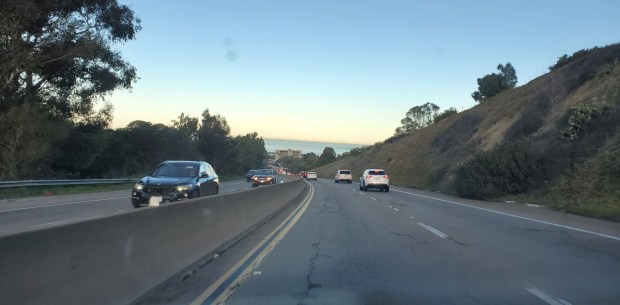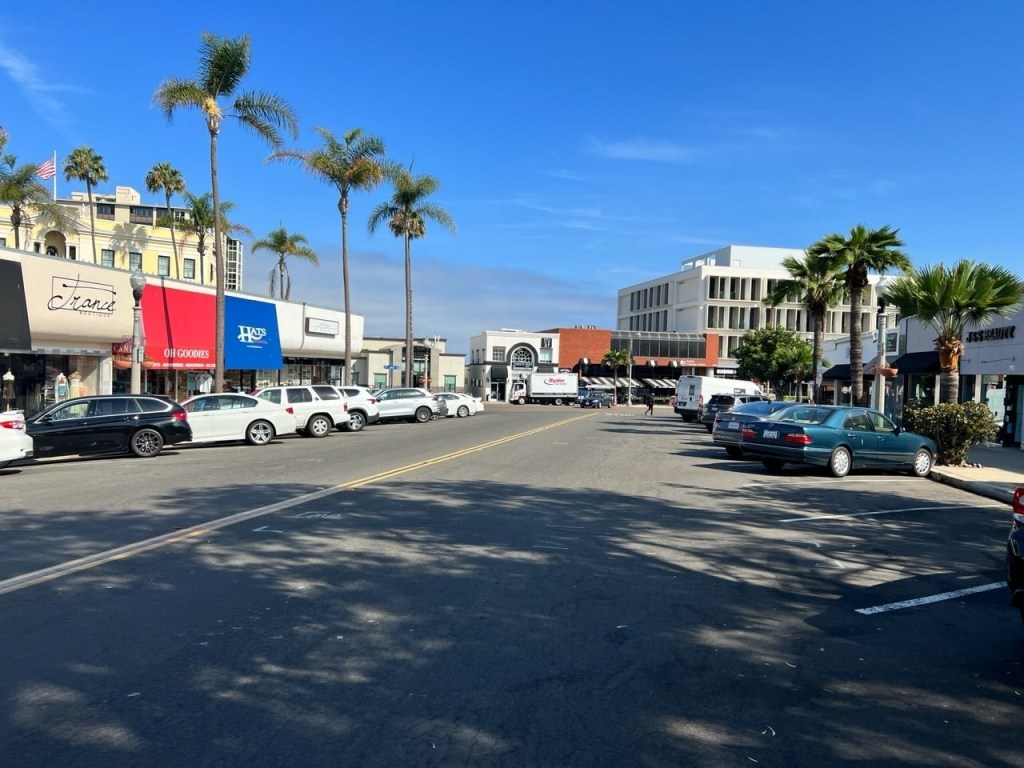San Diego officials are proposing a new policy that would make it easier for universities and other nonprofits to help the city tackle its growing backlog of infrastructure projects.
The new policy would make it easier for UC San Diego to fund intersection upgrades near campus, for the San Diego Parks Foundation to make small upgrades in city parks and for other nonprofits to spruce up city facilities.
The proposal comes with San Diego’s infrastructure deficit surpassing $6.5 billion last winter — triple the $2.16 billion gap calculated in 2020. City voters last November rejected a sales tax increase that could have helped close that gap.
The lack of a clear policy dictating how nonprofits can help fund projects has cost the city opportunities for free playground equipment, public art and intersection upgrades, city officials say. When such offers come in now, city officials don’t know what to do or whom to ask for approval.
Council President Joe LaCava, who spearheaded the new policy, said nonprofits sometimes give up on helping the city because of bureaucratic red tape.
“There are instances where somebody wanted to do something, got frustrated by resistance of whatever nature, and wasn’t willing to take the time to work through the hurdles and just walked away,” LaCava said Wednesday.
He later gave two examples: a recent offer to spruce up Girard Avenue, and an offer a few years ago to remove unsightly weeds from La Jolla Parkway.
 La Jolla Parkway. (Ashley Mackin-Solomon / UT file)
La Jolla Parkway. (Ashley Mackin-Solomon / UT file)
When the La Jolla Community Foundation and Enhance La Jolla — a maintenance assessment district — offered to enhance the sidewalks and lighting on Girard, confusion and communication problems nearly derailed the effort, he said.
City officials managed to straighten things out, and the project is slated to break ground in January. But LaCava said the situation made it clear a new policy was necessary.
And on La Jolla Parkway, the city got multiple offers to remove weeds from center medians, but the people making those offers often bailed when they became aware of the bureaucracy involved.
LaCava said instances where a nonprofit offers to lead or pay for a project fall outside the city’s traditional approval process, which focuses on city-funded capital improvement projects on public land and developer-funded projects on private property.
This creates a difficult-to-navigate process for both nonprofits and the city, he said. The new policy, which the City Council’s Rules Committee endorsed 4-0 Wednesday, would revamp and streamline the process.
An aide to Mayor Todd Gloria said the mayor endorses the plan to make policy changes.
“We see the value of having those kind of standardized parameters,” said the aide, Randy Wilde.
The new policy would authorize individual city departments, like Parks and Recreation or the Commission on Arts and Culture, to negotiate agreements with nonprofits.
The deals would cover financing, the processing of construction documents, permit fees, how community outreach would be handled and other issues.
“These factors will provide flexibility for city departments to consider on a case-by-case basis what is in the best interest of the city and the residents who would be served by the improvement,” according to a city report on the proposed policy.
The agreements would also stipulate who must maintain the infrastructure improvements, which could be especially important for high-maintenance items like water features, lighting or landscaping.
All projects by nonprofits would need to secure approval from the city engineer, an existing requirement for all city projects.
City engineer Rania Amen praised the proposal Wednesday.
“I totally understand the benefit of having a more structured framework,” said Amen, adding that it could lead to better partnerships between nonprofits and the city.
For example, she said the nonprofit Groundworks recently paid for new trails along Chollas Creek, and the city paid for related curb and gutter work there. The new policy could have streamlined that process.
Councilmember Sean Elo-Rivera said he’s concerned that low-level volunteer efforts, like neighbors painting a local playground, could become more complicated if they become part of the new policy.
“I want to make sure we don’t actually take a step backward on certain work in an attempt to take a step forward,” Elo-Rivera said.
LaCava said city officials would be careful to prevent such unintended consequences.
Elo-Rivera said he strongly supports the policy in general.
“There are few things that are more frustrating to people than showing up wanting to help and being told ‘no’ when a clear need exists,” he said. “That happens far too often in this city.”
City Attorney Heather Ferbert and LaCava’s staff will now create a detailed policy that will be presented to the City Council for approval this fall.
